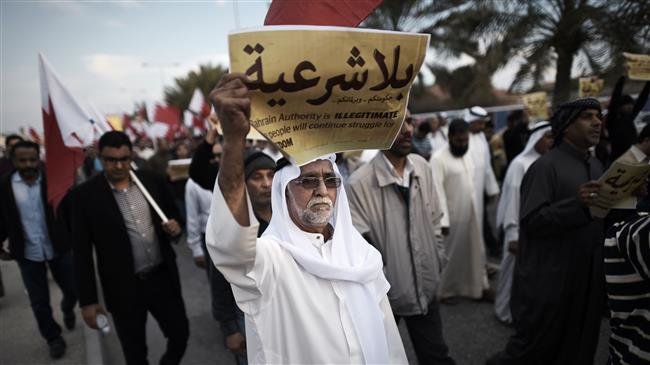
RNA - Bahrain is scheduled to hold parliamentary elections on November 24.
A cross-party group of British lawmakers, including Conservative MP Peter Bottomley, Green Party MP Caroline Lucas, and Liberal Democrat MP Tom Brake, said in a letter to the Foreign Office that Bahrain “effectively bans major opposition figures from holding political office.” They added that a countless number of Bahraini individuals have been “incarcerated on charges that criminalize free expression and assembly.”
“Free and fair elections can only take place if citizens are able to express their views.”
The British lawmakers also referred to the forcible closure of the only independent newspaper, Al-Wasat, back in 2017 and the detention of at least 15 journalists and Bahrain’s most prominent human rights defender Nabeel Rajab for comments deemed critical of the Bahraini state.
“Bahrain may be a key strategic ally to the UK but human rights and democratic values are fundamental pillars of our society and foreign policy”, the letter concluded.
In Ireland, a cross-party group of lawmakers involved in foreign affairs urged the release of all political detainees in Bahrain and permitting international bodies to observe the elections.
Members of the European Parliament also slammed the Bahraini regime for missing the opportunity of the elections “to ease tensions and allow space for open dialogue to take place.”
Some 40 members of the European Parliament composed a letter addressed to Bahrain's King Hamad bin Isa Al Khalifah which is to be published next week.
The letter also points to “the enactment of increasingly repressive measures.”
“Under these conditions, Bahrain’s elections cannot be recognized by the international community as free, fair, or legitimate.”
According to Press TV, Last week, US Congressmen James McGovern and Randy Hultgren, who are co-chairs of the bipartisan Tom Lantos human rights commission in the US House of Representatives, stressed that it would be difficult for the international community to recognize the upcoming elections as legitimate, noting that Manama "has dissolved two major opposition political societies, barred all members of the societies from running for office on an individual basis, and imprisoned a number of key figures, as well as writers and civil society leaders."
“In addition, Bahrain’s electoral infrastructure inherently disadvantages the political opposition. There is no independent electoral commission and, to date, there has been no commitment by the government to permit either domestic or international observers,” the letter added.
In May, Bahrain’s parliament approved a bill barring members of the al-Wefaq from running in elections, the latest step in Manama's political crackdown.
Thousands of anti-regime protesters have held numerous demonstrations in Bahrain on an almost daily basis ever since a popular uprising began in the kingdom on February 14, 2011.
They are demanding that the Al Khalifah dynasty relinquish power and let a just system representing all Bahrainis be established.
Manama has gone to great lengths to clamp down on any sign of dissent. Scores of people have lost their lives and hundreds of others sustained injuries or got arrested as a result of the Al Khalifah regime’s crackdown.
847/940